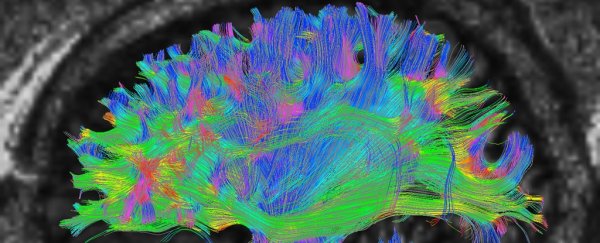Our incredible powers of learning are such a defining part of being human, yet we still don't fully understand how our brains absorb new skills.
Powerful modern imaging techniques, allowing us to look more closely at how memory consolidation works, have just highlighted the importance of wakeful rest in the learning process.
Researchers have been aware since 1885 that resting between practice enhances memorization when learning new skills. Now, scientists have witnessed that our brains rapidly replay new memories during such restful pauses when we're performing a new activity, and the replays happen up to 20 times faster than the physical act of practicing the activity.
"This is the first demonstration of wakeful neural replay of a newly learned skill elicited by practice in humans," said neurologist Leonardo G. Cohen from the National Institute of Neurological Disorders and Stroke (NINDS).
We've known for some time how sleeping plays a critical role in the physiology of memory consolidation, stabilizing (or possibly switching between) a memory as it moves from short-term to long-term storage.
In the new study, researchers watched how wakeful rest can do this for motor memory, where memory consolidation can be significantly more powerful than the same process in sleep.
NINDS neuroscientist Ethan R. Buch, Cohen, and their colleagues put 30 volunteers to the test. The volunteers typed "41324" with their non-dominant hand as fast and accurately as possible, during 10-second trials.
Each trial was followed by a 10-second rest period and repeated 36 times, while being recorded through magnetoencephalography (MEG).
This imaging technique measures the magnetic fields generated by our brain cells' electric currents, providing researchers with a very high-resolution glimpse of brain activity.
The decay of magnetic fields in our brain tissues is much steeper than for electric fields, allowing us to distinguish much finer details than other techniques such as electroencephalography.
The researchers observed that more frequent replays (as short as 50 ms) during rest periods aligned with better learnt skills. This is too fast to be a form of conscious mental rehearsal, the team explains.
The replays happened more frequently in the first 11 trials (up to 30 times during 10 seconds of rest), which was the steepest part of the learning curve.
"Our data indicate that frequent, fast waking replay reinforces hippocampus and neocortical associations learned during prior practice," explained Buch, "a process relevant for improving subsequent performance and wakeful consolidation of skill."
The team thinks our brains pressing replay on the activity they just recorded is what recruits the brain networks involved in processing and storing these skills. They found this involved our hippocampal, sensorimotor, and entorhinal parts of the brain.
"The strong involvement of hippocampal and medio-temporal activity in replay of a procedural motor memory was surprising, given that this type of memory is often thought of as not requiring hippocampal contributions," said Buch.
Buch and team caution that they have yet to establish that replaying the memory itself is what causes it to become a skill.
Interpretations of the MEG recordings are not always accurate, which could impact the power of their analysis, so further investigations are required to confirm their findings. But similar findings have also been observed in mice.
Understanding how our brains take what we practice and turn it into a skill could allow us to optimize learning strategies, including creating more effective therapies for people with brain injuries.
This research was published in Cell Reports.
